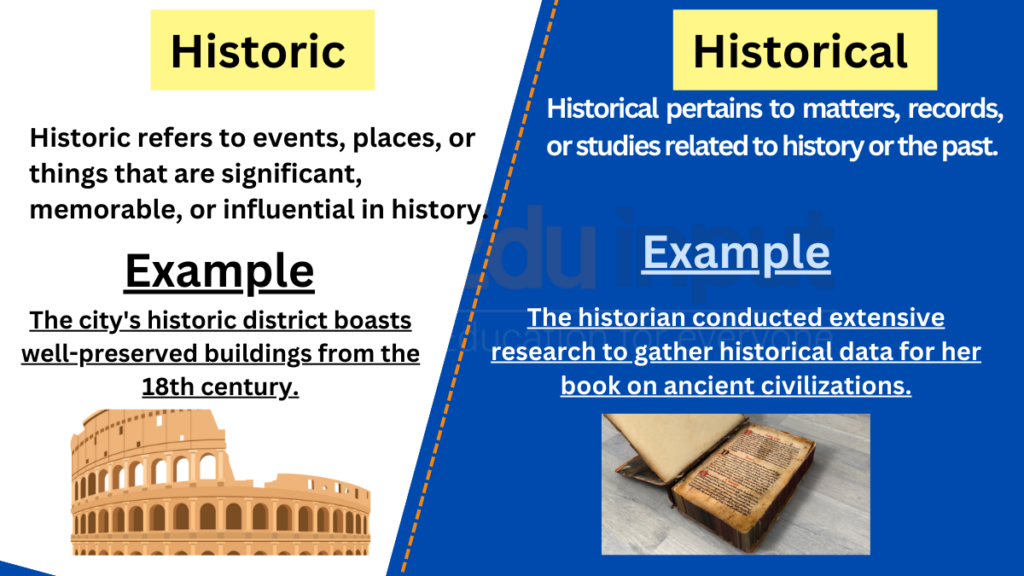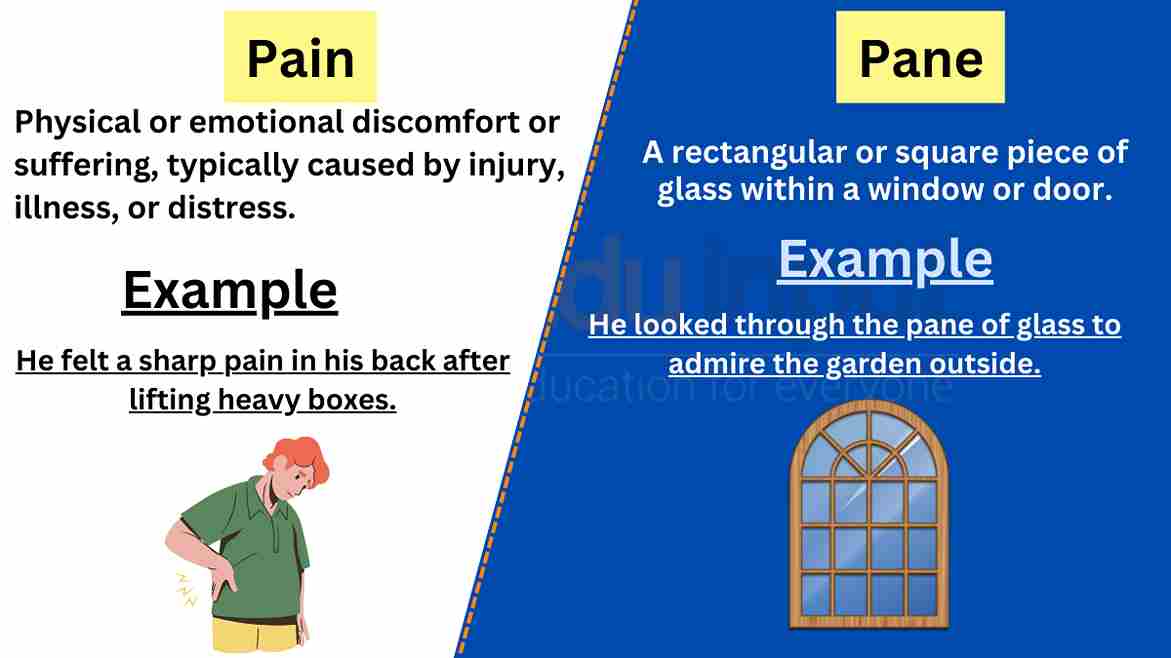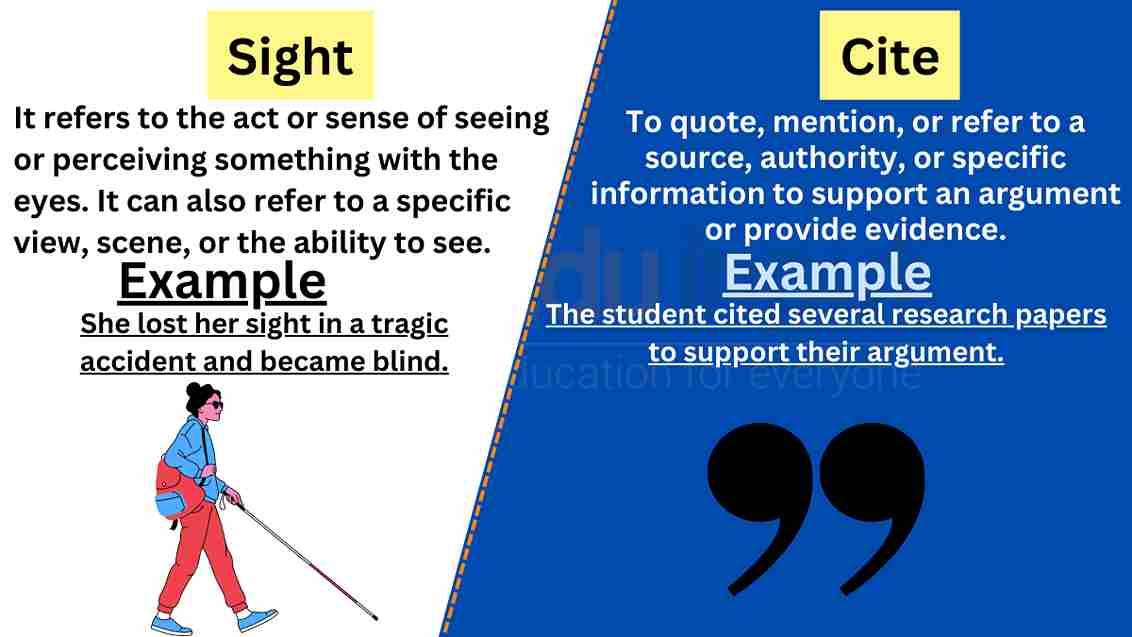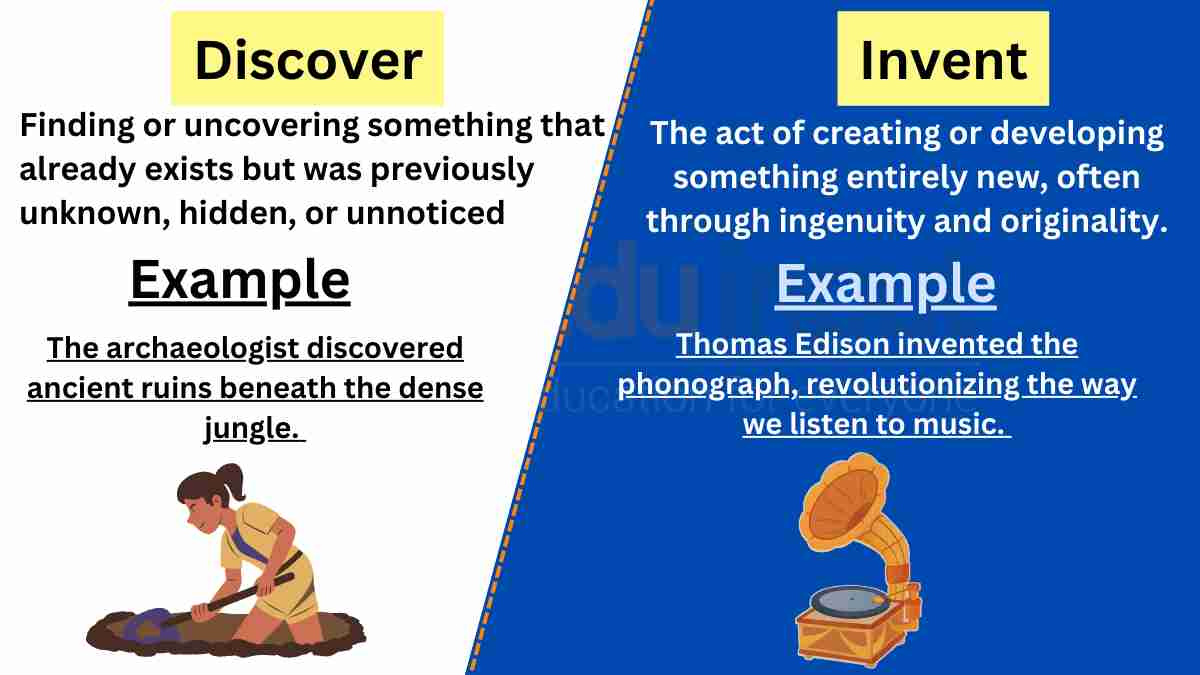Historic vs. Historical-Difference between and Examples
In the vast realm of language, certain words may appear similar, yet their usage and meaning hold subtle differences. “Historic” and “historical” are two such terms that often cause confusion. In this article, we will delve into the nuances of “historic” and “historical,” exploring their definitions, distinctions, and appropriate contexts. By grasping the dissimilarities between these words, we can enhance our language skills and communicate more effectively. Join us on this linguistic journey as we unravel the mysteries of “historic” and “historical.”

Meanings and Examples
Historic meaning
Historic refers to events, places, or things that are significant, memorable, or influential in history.
Historic Examples
a) Visiting the historic castle allowed us to step back in time and witness the grandeur of the past.
b) The signing of the peace treaty was a historic moment that marked the end of a long-standing conflict.
c) The city’s historic district boasts well-preserved buildings from the 18th century.
Historical meaning
Historical pertains to matters, records, or studies related to history or the past.
Historical Examples
a) The historian conducted extensive research to gather historical data for her book on ancient civilizations.
b) The museum’s collection includes a wide range of historical artifacts, offering insights into different time periods.
c) In historical novels, authors often blend real events with fictional characters to create captivating stories.
Difference between Historic and Historical
| Historic | Historical | |
| Meaning | Significance or importance in history | Relating to matters, records, or studies of the past |
| Example | “Visiting the historic castle allowed us to step back in time.” | “The historian conducted extensive research for her historical book.” |
| Usage | Describing significant events, places, or things in history | Referring to matters or studies related to the past |
| Context | Monuments, landmarks, pivotal events | Research, books, artifacts, historical analysis |
Usage in a Paragraph
Imagine standing in the midst of a historic battlefield, the air filled with a sense of awe and reverence. This site witnessed a pivotal moment in history, forever etched in the annals of time. The significance of the events that unfolded here resonates deeply, as they shaped the course of nations and defined the struggles of generations. In this context, the term “historic” accurately captures the importance and impact of the place in relation to history.
Now, let’s shift our focus to a different scenario. Picture a diligent historian poring over ancient manuscripts, uncovering forgotten tales of the past. The researcher delves into historical records, meticulously piecing together the puzzle of bygone eras. Through diligent analysis and interpretation, the historian sheds light on the intricacies of different time periods, offering valuable insights into human civilization. Here, “historical” appropriately describes the subject matter and the meticulous study of the past.
Discerning the nuances between “historic” and “historical,” we can wield these words precisely, accurately conveying our thoughts and ideas. “Historic” relates to events, places, or things that hold significance in history, while “historical” pertains to matters or studies related to the past. By appropriately using these terms, we can capture the essence of monumental moments, pay homage to significant sites, explore historical research, and celebrate the rich tapestry of human history. Let us embrace the power of these words to accurately communicate the profound impact of the past on our present and future.







Leave a Reply